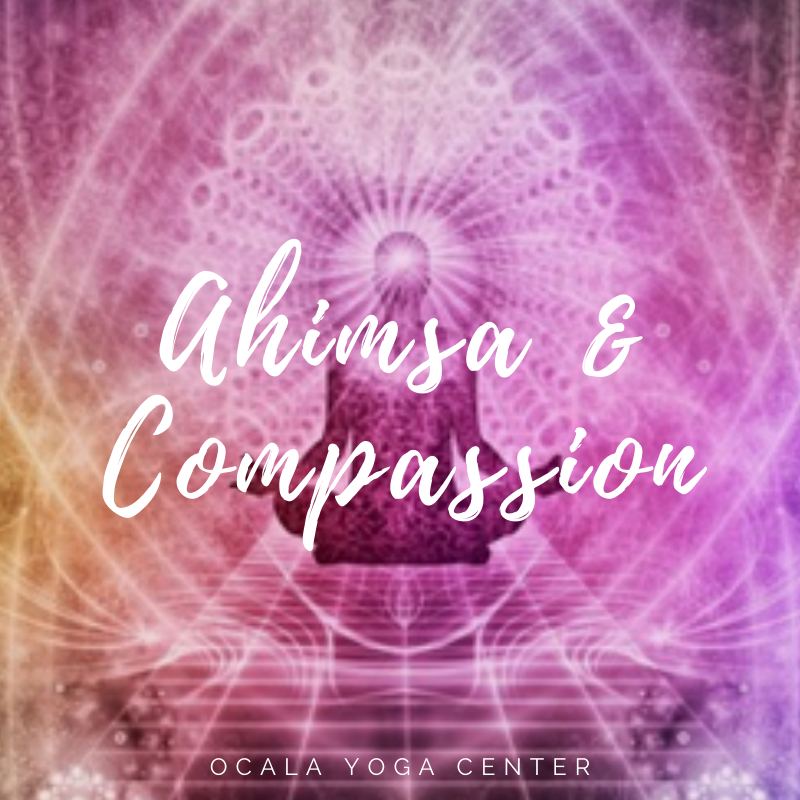Nurturing and Cultivating Love through Presence and Awareness
Hello Yogis, as many of you regulars know, we are currently in the midst of another Yoga Teacher Training here at OYC. As part of our curriculum, we are learning about the eight limbs of yoga, as codified in the great Yoga Sutras by Patanjali. These masterful sutras are a road map of sorts that guide us to Life Mastery and even Liberation. This past weekend, we studied the Yamas, aka the restraints. The first Yama is called Ahimsa, which translates as non-violence or harming. The use of compassion is a vital component of a successful Ahimsa practice, and an extraordinarily helpful trait to develop in these times of uncertainty, trepidation and upheaval.
I believe most of us can easily understand how being physically violent to others is not a helpful thing, i.e. slapping your neighbor upside his head would not be considered very “yogic”. But Ahimsa doesn’t limit itself to actions alone. Instead, it includes more subtle forms of violence, such as words, gestures, and even thoughts. And for many of us, the most common way we neglect to follow the principle of Ahimsa is self-inflicted, doing harm to ourselves. Many of us push ourselves beyond our physical and emotional limits in a variety of ways. Heck, I’ve said things to myself that I would NEVER say to someone else! Upon inspection, we quickly discover that the application of Ahimsa is just as important to apply to ourselves as it is to other people and to the rest of the world. It could be argued, in fact, that we need to start with ourselves.
The practice of compassion starts with the application of Ahimsa towards ourselves. Self-compassion begins with treating ourselves as we would a dear friend who is having a hard time, even if she really screwed up or is feeling inadequate. When we are in pain, we practice self-kindness, humanity (the recognition that all humans make mistakes), and mindfulness. To be perfectly blunt, how can we authentically be compassionate towards others when we are unable to show it towards ourselves?
Studies have shown that individuals who are able to be self-compassionate are happier, have better relationships and physical health, are less depressed and anxious, and are able to build resilience, which is needed to cope with stressful events and situations.
Practicing Ahimsa towards ourselves enables us to practice compassion towards others. Compassion helps us to connect with others, heal relationships and move forward with kindness in the face of difficulty.
In the words of Brene Brown, “Compassion is not a virtue — it is a commitment. It’s not something we have or don’t have — it’s something we choose to practice.”
Just like all of yoga: practice, practice, practice! We all could use it, now more than ever <3
Much Love to You and Yours,
Kristine
Has yoga changed your life? Has it transformed you from the inside out? Send us a message and let us know! We’d love to hear from you.
